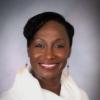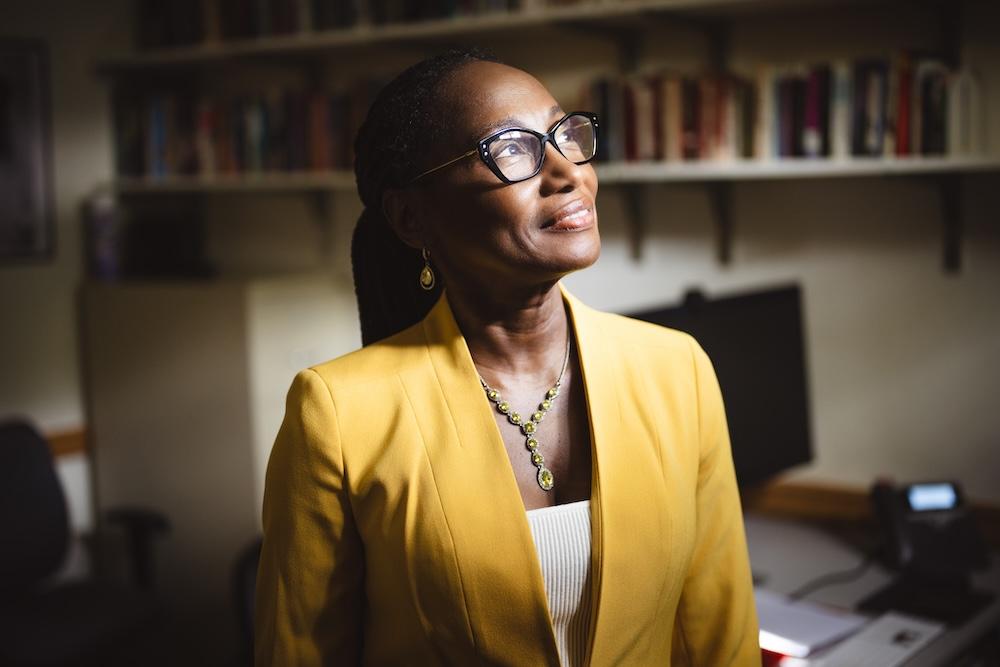New Africana Studies Director Brings Global Perspective to Lehigh
Meet the new director of the Africana Studies program and new faculty member of the English Department Simone A. James Alexander
This fall, the College of Arts and Sciences welcomes Simone A. James Alexander as the new director of the Africana Studies program and a new faculty member in the English department. Alexander brings years of experience as chair and director of Africana Studies from her time at Seton Hall University in New Jersey.
Alexander chose Lehigh because of the opportunities for collaborative work and to engage with different departments. “Lehigh was interested in enhancing Africana in so many ways that I felt that I had something to contribute,” she says. Her research, teaching, and scholarship are sure to expand the program’s diverse and multicultural aspects.
“Simone has an incredible breadth of experience, having studied, taught, and done research all over the world,” says Bruce Whitehouse, former co-director of the Africana Studies program. “Her own story shows how Africana is a transnational field that weaves together strands from multiple places and cultures. We think she's bringing so much to Lehigh that our students can benefit from.”
After leaving her native Guyana on scholarship, Alexander went to Moscow, Russia and studied philology, Russian language and literature, for six years. After transitioning from linguistics to post-colonial studies in the United States, things clicked for her when she started studying Jamaica Kincaid, Antiguan-American novelist and essayist who often writes about mother-daughter relationships, anti-colonialism, and gardening. “For me, it was a moment of identification. There’s someone from my part of the world with whom I can identify,” she explains. This led her to specialize in postcolonial and diaspora studies.
Alexander’s knowledge of multiple languages allowed her to complete a Ph.D in Comparative Literature. Her comparative focus has enabled her to study various disciplines within the scope of diaspora. She brings this comparative, transnational focus into her teaching. In her classes, students “engage in colonial texts as a way to decolonize some of the constructs and worldviews.” Alexander will be teaching Contemporary Black British Literature (ENGL 391-015/AAS 391-015) next spring.
“It’s a critique and criticism of these larger structures because the whole idea is to dismantle these large structures and challenge narrow definitions,” she says.
Alexander’s vision for the Africana Studies program includes building upon the program’s strong foundation. She hopes to expand the program’s focus to include Caribbean literature and Francophone literature, bringing distinguished writers like Jamaica Kincaid and Edwidge Danticat to campus. She also aims to increase study abroad opportunities in the Caribbean. The Africana Studies program at Lehigh has not offered study abroad programs to the University of the West Indies campuses before, but Alexander says, “I'm thinking Jamaica, Barbados, and I'm hoping that at some point, I could even do it in Guyana.”
Alexander is passionate about connecting the program with the local community. “Community involvement is very important for me because Africana is about grassroots,” she says. Bridging the gap between the community and the university will only benefit students by providing experiential learning opportunities. “It’s a really, really powerful way to learn,” she adds.
“Community involvement is very important for me because Africana is about grassroots.”

Africana Studies is an interdisciplinary field that breaks down barriers between institutions and local communities. “Africana Studies was born out of activism,” Alexander explains. “People sat down at those counters, invaded spaces because of exclusion and demanded a politics of inclusion. And that’s what Africana Studies does.”
In the long term, Alexander hopes to grow the program into its own department. “That's the ultimate goal,” she says, “to be more formidable and visible.” Alexander is optimistic about achieving her goals and believes that Lehigh is the right place to realize her vision. “I'm hoping that with all the wonderful ideas and dreams that I have that I'll be able to realize them here,” she says, “and from the feedback I've gotten so far, people are willing and open.”

